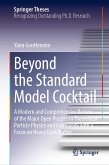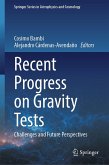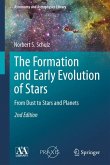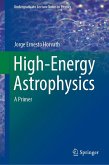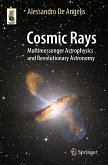The observation capabilities of modern astrophysics are constantly increasing. They range from optical telescopes and space telescopes in the infrared to radio telescopes, and from gravitational wave detectors to neutrino observatories. While some focus on light in space, others examine the smallest particles underwater or measure disturbances in spacetime smaller than the diameter of a proton. This book offers an exciting and comprehensive overview of our technical capabilities to explore the universe. It is just as suitable as a foundation for a lecture in astronomy or astrophysics as it is for reading by those interested in the natural sciences.
Dieser Download kann aus rechtlichen Gründen nur mit Rechnungsadresse in A, B, BG, CY, CZ, D, DK, EW, E, FIN, F, GR, HR, H, IRL, I, LT, L, LR, M, NL, PL, P, R, S, SLO, SK ausgeliefert werden.



